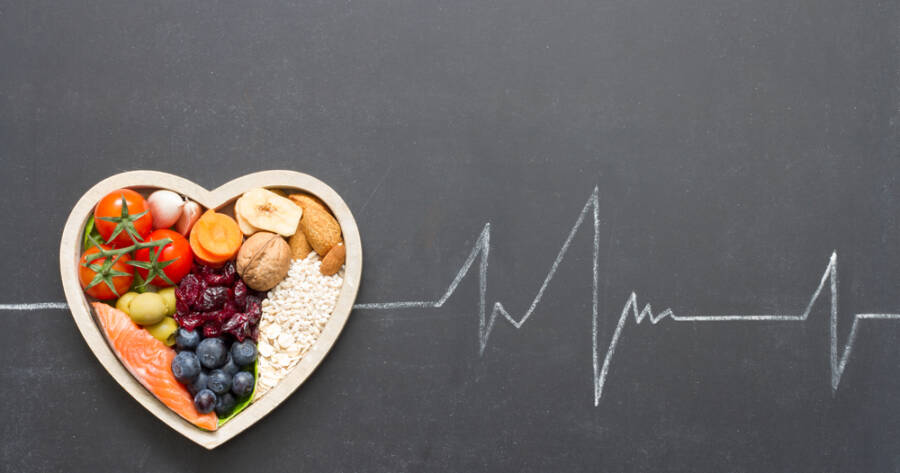Maintaining healthy cholesterol levels is key to promoting heart health and preventing cardiovascular diseases. While medications are often used to manage cholesterol, incorporating certain foods into your diet can help naturally lower cholesterol levels. From fiber-rich vegetables to heart-healthy fats, these foods can offer significant benefits without the side effects of pharmaceuticals. Embracing a diet that supports cholesterol management not only improves overall health but also enhances vitality and well-being.
Limit Saturated and Trans Fats
Saturated and trans fats are known to raise LDL (bad) cholesterol levels, increasing the risk of heart disease. These unhealthy fats are commonly found in processed foods, red meats, and fried foods. Reducing your intake of these fats by opting for lean proteins and cooking with healthier oils can help keep your cholesterol levels in check. Avoiding packaged snacks and fast food is an effective strategy for lowering cholesterol.
Eat Oats and Whole Grains
Oats and whole grains are rich in soluble fiber, which helps reduce cholesterol absorption in the bloodstream. Soluble fiber binds to cholesterol and eliminates it from the body. Foods like oatmeal, barley, and whole wheat bread can help lower LDL cholesterol while improving overall heart health. Adding whole grains to your daily diet can be an easy and delicious way to support healthy cholesterol levels.
Omega-3 Fatty Acid-Rich Foods
Omega-3 fatty acids are essential for heart health and play a significant role in lowering cholesterol. Fatty fish like salmon, mackerel, and sardines are excellent sources of omega-3s. These healthy fats reduce triglyceride levels, lower blood pressure, and reduce inflammation, all of which contribute to better cholesterol levels. If you’re not a fan of fish, flaxseeds, chia seeds, and walnuts are plant-based sources of omega-3s.
Nuts
Nuts are a powerhouse of nutrients and are especially effective at lowering cholesterol. Almonds, walnuts, and pistachios are rich in unsaturated fats, fiber, and antioxidants, which help reduce LDL cholesterol while boosting HDL (good) cholesterol. Including a handful of nuts in your daily diet can improve your cholesterol levels and provide heart-healthy fats. However, be mindful of portion sizes, as nuts are calorie-dense.
Avocados
Avocados are an excellent source of monounsaturated fats, which can help reduce LDL cholesterol and increase HDL cholesterol. This creamy fruit is also rich in fiber, which further supports healthy cholesterol levels. Including avocado in your diet can help improve heart health, reduce inflammation, and provide essential nutrients. Enjoy avocados in salads, spreads, or as a tasty addition to sandwiches for a heart-healthy boost.
Beans and Legumes
Beans and legumes, such as lentils, chickpeas, and kidney beans, are high in soluble fiber, which helps lower cholesterol by binding to it and removing it from the body. They are also a great source of plant-based protein, making them an excellent alternative to animal-based protein sources that can raise cholesterol levels. Adding beans and legumes to your meals can help improve heart health while supporting healthy cholesterol levels.
Leafy Greens
Leafy greens like spinach, kale, and Swiss chard are packed with fiber, antioxidants, and essential nutrients that support overall health. These vegetables help lower LDL cholesterol and provide vital vitamins that protect the heart. Including a variety of leafy greens in your diet can enhance cholesterol-lowering efforts while providing anti-inflammatory benefits. Toss them in salads, blend them into smoothies, or sauté them for a nutritious and heart-healthy meal.
Fruits
Fruits such as apples, oranges, berries, and grapes are rich in soluble fiber and antioxidants that contribute to lowering LDL cholesterol. The pectin found in fruits, especially apples and citrus, helps lower cholesterol by binding to it and flushing it out of the body. Adding a variety of fruits to your diet provides heart-healthy nutrients and supports a balanced, cholesterol-friendly lifestyle. Enjoy them as snacks, in smoothies, or as a sweet addition to meals.
Olive Oil
Olive oil is a key component of the Mediterranean diet and a great choice for lowering cholesterol. It’s rich in monounsaturated fats, which help reduce LDL cholesterol and improve HDL cholesterol. Replacing butter and processed oils with olive oil in your cooking can provide significant heart-healthy benefits. Use olive oil for sautéing, drizzling over salads, or even as a dipping sauce for bread to promote cholesterol health.
Whey Protein
Whey protein, a high-quality protein derived from milk, can help lower LDL cholesterol levels. Studies show that consuming whey protein can reduce cholesterol levels by increasing the body’s ability to metabolize fats. Adding whey protein to your diet, whether in smoothies or as a supplement, can support heart health and assist with muscle building and weight management. It’s an excellent addition to your diet for improving overall cholesterol levels.
Embrace a Heart-Healthy Lifestyle with Cholesterol-Lowering Foods
Incorporating cholesterol-lowering foods into your diet is a powerful step toward better heart health and overall well-being. By focusing on nutrient-dense foods like whole grains, omega-3-rich options, nuts, and leafy greens, you can naturally lower your cholesterol and reduce the risk of heart disease. Remember that small dietary changes, combined with a healthy lifestyle, can lead to significant improvements. Making these foods a regular part of your meals can help you maintain optimal cholesterol levels and support long-term heart health.
